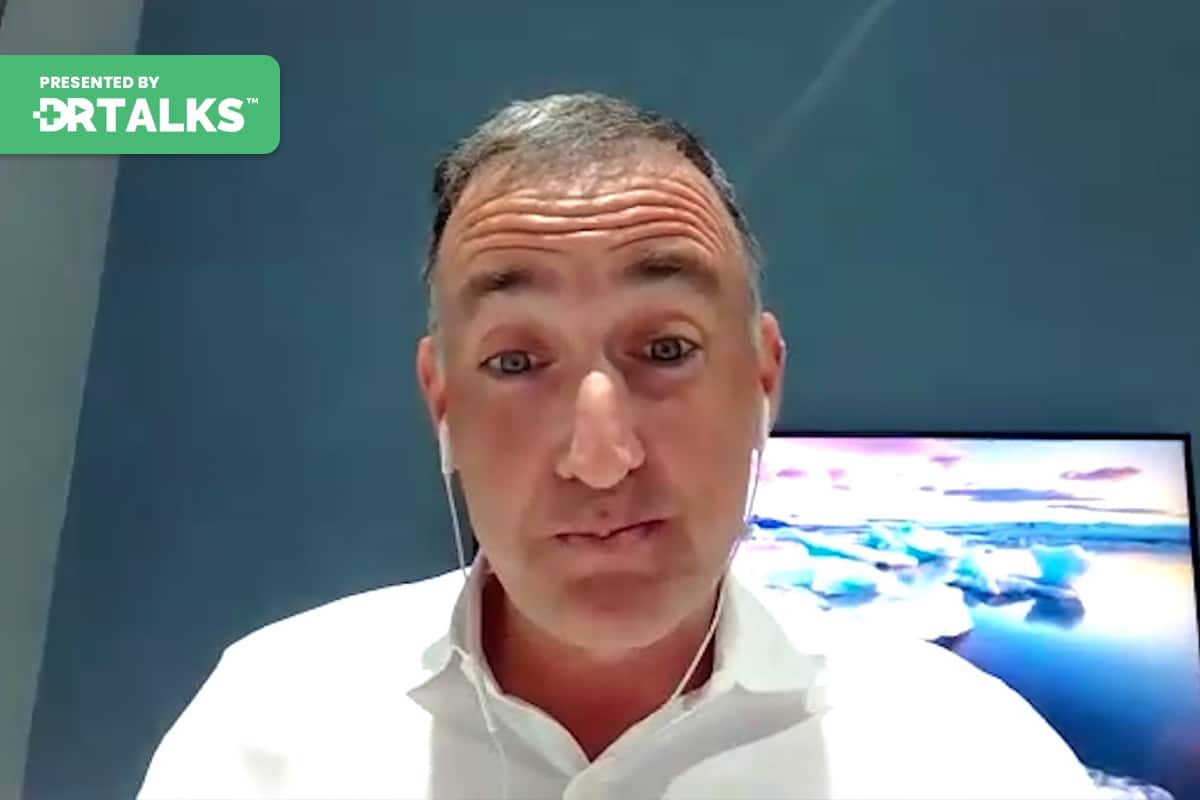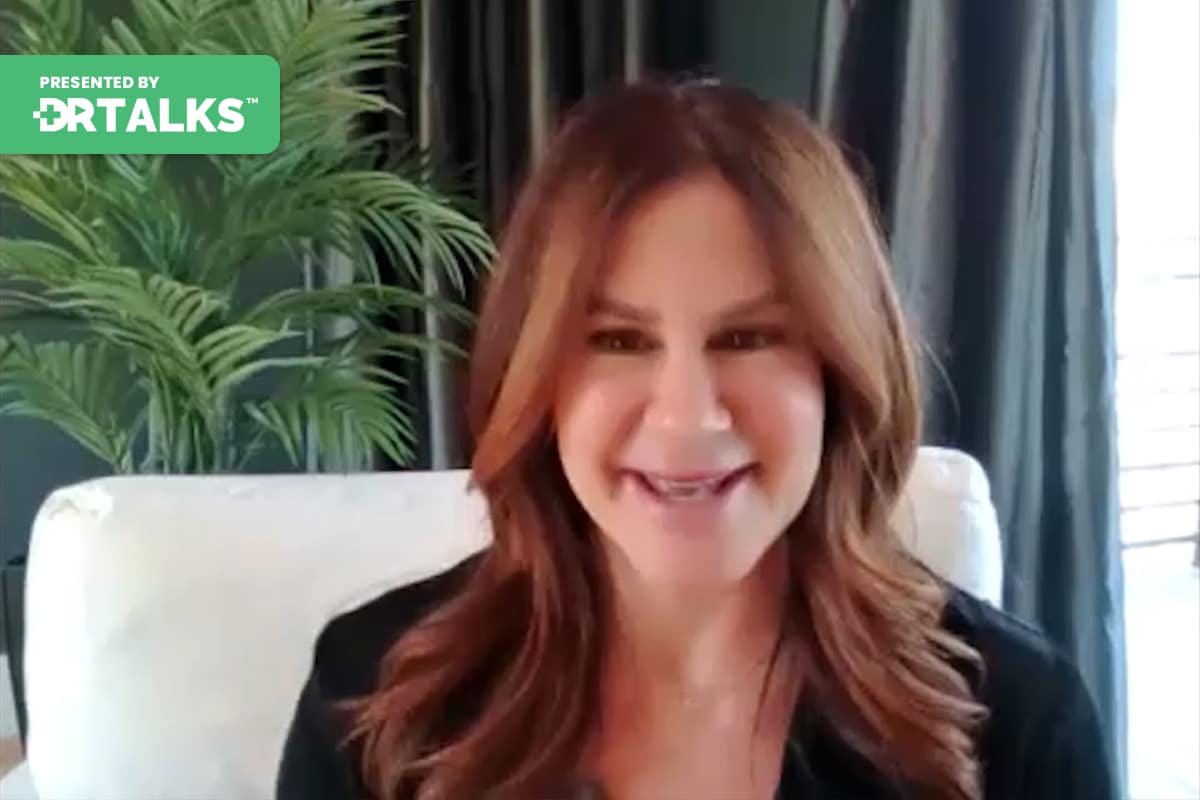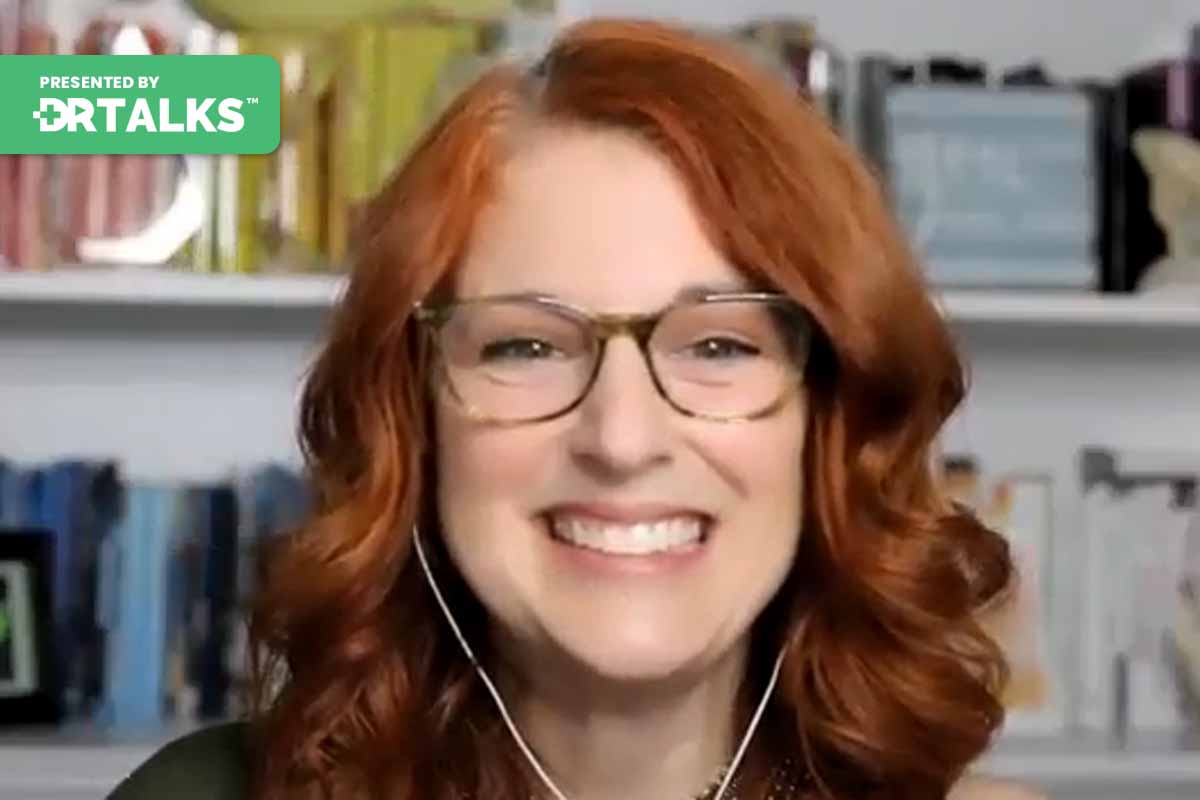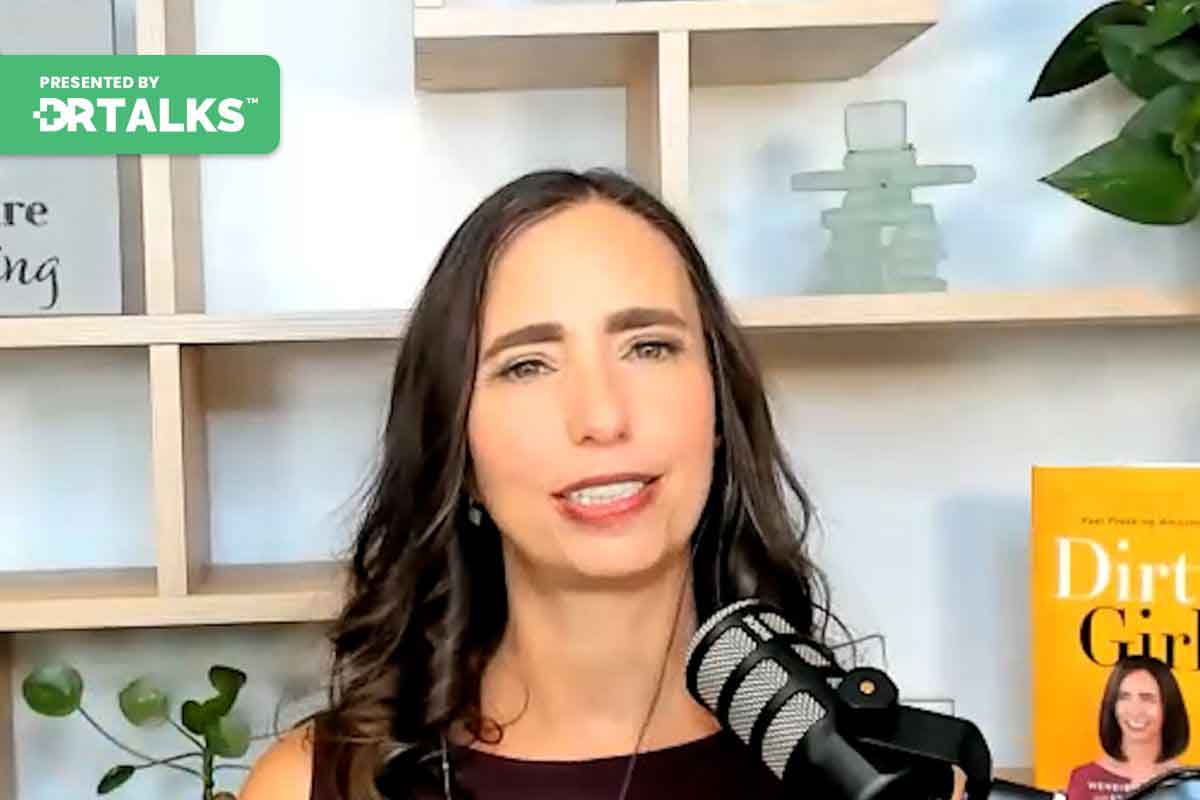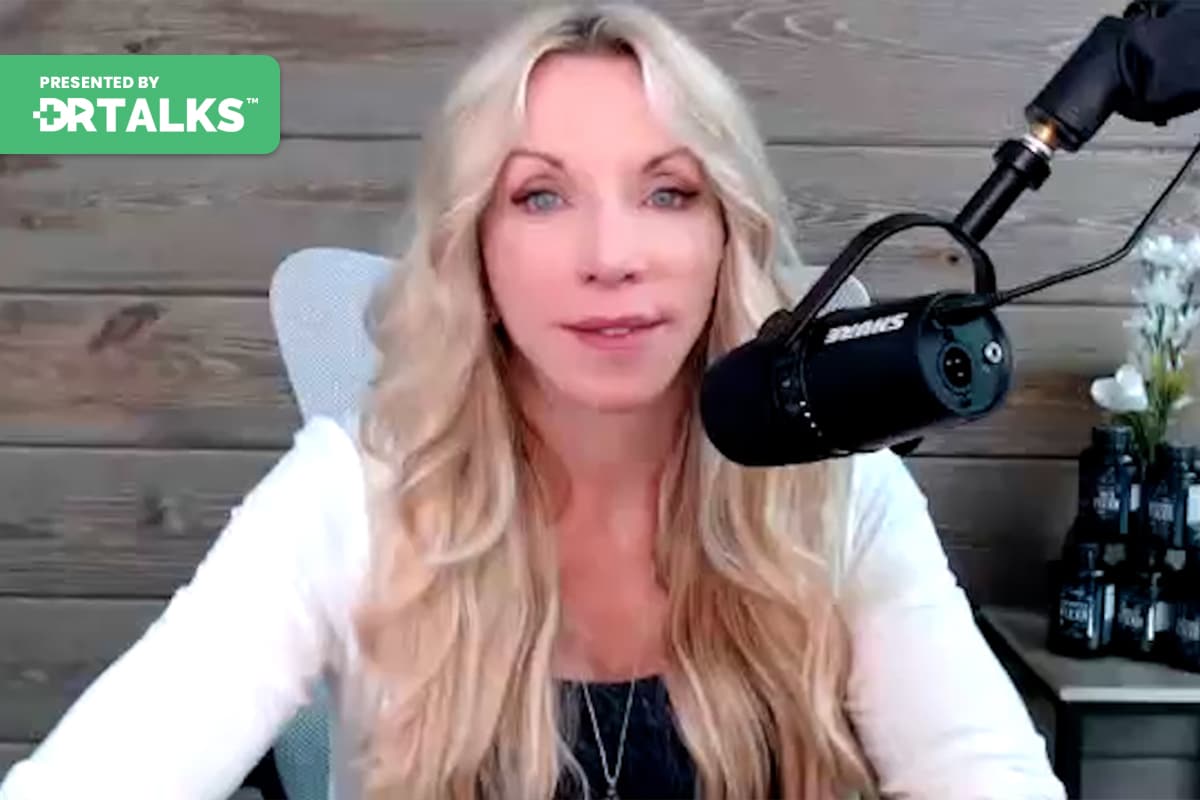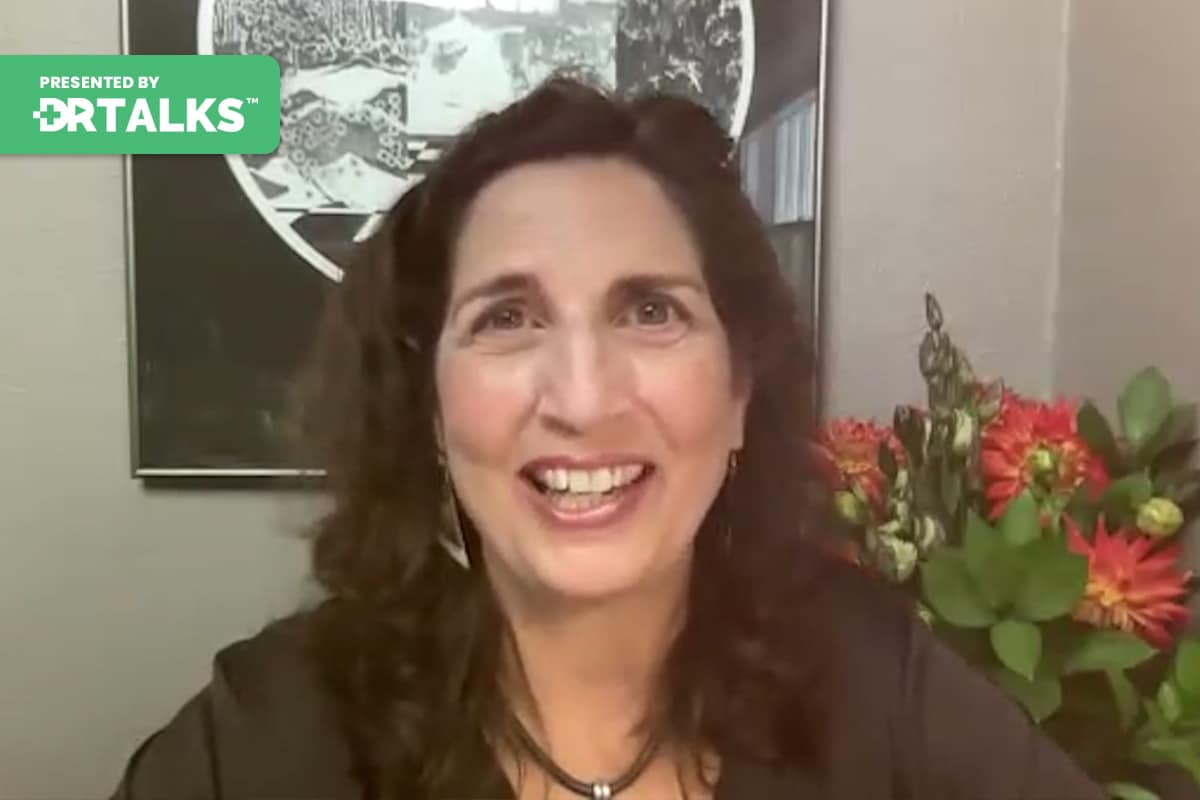Join the discussion below
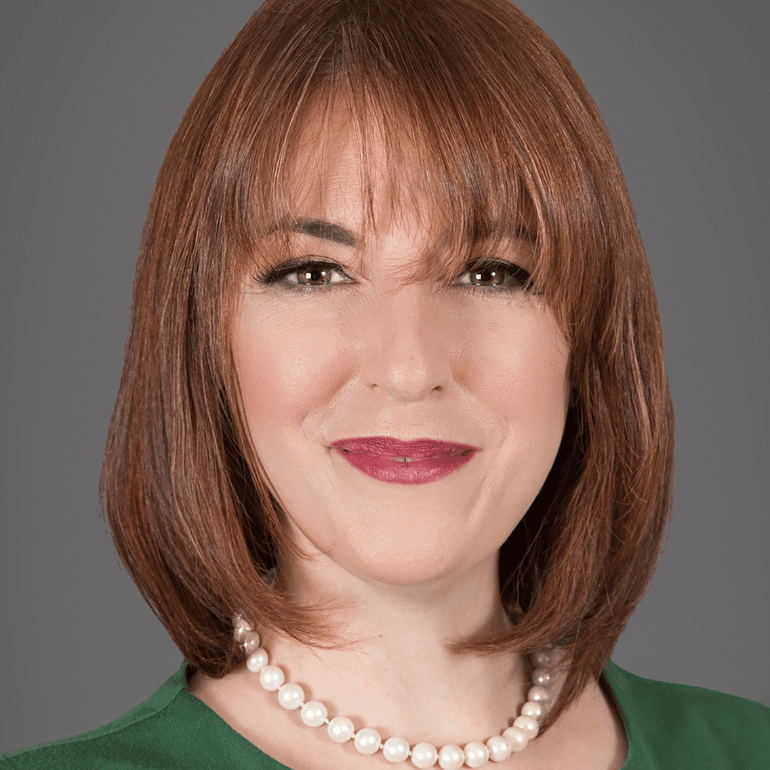
Betsy Greenleaf, DO, FACOOG (Distinguished)
Betsy Greenleaf, DO, FACOOG (Distinguished). Premier women’s health expert, entrepreneur, inventor, and business leader, who specializes in female pelvic medicine and reconstructive surgery for over 20 years, Dr. Greenleaf, is a trailblazer as the first female in the United States to become board certified in Urogynecology. She possesses a professional... Read More
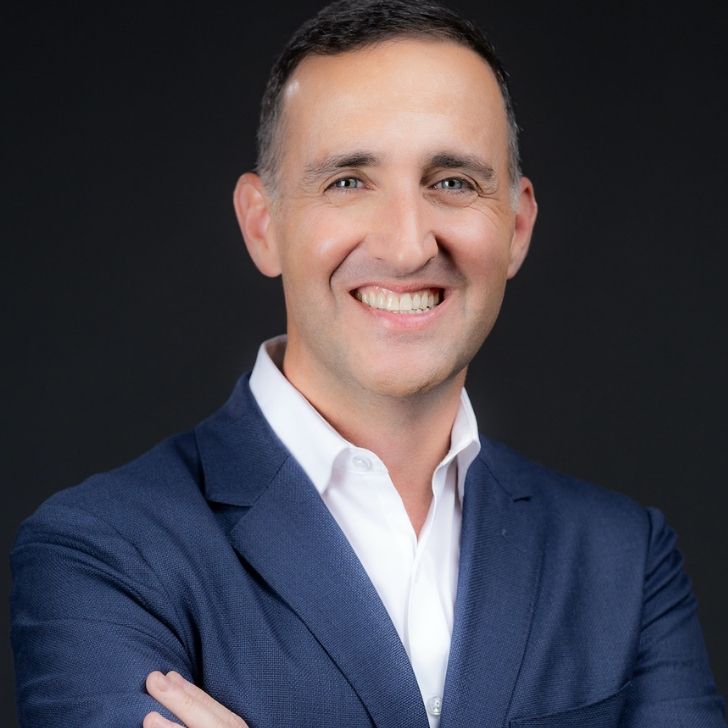
Tracy Gapin, MD, FACS is a board-certified urologist, world renowned men’s health & performance expert, best-selling author, and professional speaker. He has over 20 years of experience focused on providing Fortune 500 executives, entrepreneurs, and athletes a personalized path to optimizing their health and performance. Read More
- Grasp the reasons behind the decline in men’s health and longevity
- Explore comprehensive tests and biometrics to unveil potential health obstacles
- Learn how to harness the potential of personalized genetics and the pivotal role of daily choices
- This video is part of the Solving Sexual Dysfunction Summit
Betsy Greenleaf, DO, FACOOG (Distinguished)
Okay, everybody. Welcome back to another amazing episode on the solving sexual dysfunction summit. And we have a treat for you now. We have Dr. Tracy Gapin. So I am really excited because Dr. Tracy Gapin is a board-certified urologist, world-renowned men’s health and performance expert, and the founder of the Gapin Institute, the global leader in high-performance health. And we are going to be talking all about the silent crisis in men’s health. So thank you so much, Dr. Tracy for being with us today.
Tracy Gapin, MD, FACS
Oh, Betsy, thanks so much. Glad to be here with you.
Betsy Greenleaf, DO, FACOOG (Distinguished)
Yeah. So, yeah, we were just talking a little bit beforehand. And, you know, in general men’s health is not one of my specialty is. I got the women taken care of. So, you know what is the problem that we’re seeing in men in the silent crisis?
Tracy Gapin, MD, FACS
Yeah, you know, men are struggling and they don’t really know where to go. You know, we have this problem where men, especially once they hit 40 things start to fall apart. And I spent 25 years in urology before I stepped away from traditional medicine to launch the Gapin Institute. And every day I would see guys come in and, you know, the complaints are the same. I want to have more energy, I want to lose weight, I want to have better sex, and what I could do just to live longer. And the problem is that our traditional healthcare system is not built to help them in any way. You know, for so many years the only tools I had for these guys was testosterone and the blue pill. And they would come back three months later and hey, doc, I feel the same. And I was frustrated for many years because the traditional healthcare model, I mean, even my urology training did not prepare me to help these men. And so that got me going through research and certifications and extra education, courses and all that. And next thing you know I’ve really, completely transformed the way I look at men’s health. And I think that’s what men really need. They need a different approach, a comprehensive approach to help them with those four complaints that they ask for every day.
Betsy Greenleaf, DO, FACOOG (Distinguished)
You know, I think this is so important because I see it even in my personal life. And my husband, who’s in his forties, he said, you know, he’s like, I’m working out all the time. He’s like, and it’s just not changing. He’s like, I don’t understand it. He’s like, I’m looking weaker and weaker, but I’m working out harder and harder. He’s like, I don’t know what’s going on and same thing he’s like, I don’t know where to go.
Tracy Gapin, MD, FACS
Yeah, exactly. Right. You know, every guy I see over the age of 40 the same thing happens. They start to lose muscle mass or they’re I’m working out, doc, but nothing’s happening. I can’t burn fat, I can’t build muscle. I can’t get rid of this tire around the waist. They’re stressed out, they’re tired, they’re not sleeping well. They are dealing with a lifestyle that doesn’t have balance. So they’re, you know, think about this, men have to be role models to their children. So they have to be a good father. They have to be a good husband to their wife. They need to pay the bills. They need to raise money. Always generate enough income from their business. If they’re running a business they’ve got to take care of their employees and all the other stressors. They have so many things that they’re focused on that they never take time for themselves. And what happens is they get stressed. And cortisol, as we know, cortisol crushes testosterone and crushes all of our other hormones. It causes inflammation and it becomes this downhill cascade of events. And so I think for men over the age of 40 recognize you’re not alone when you’re struggling with belly fat, when you’re struggling with loss of muscle mass, brain fog, cognitive decline, energy. And we haven’t talked about sex. Loss of libido, sex drive is not the same. I can’t perform like I used to. I hear this every day and it’s the same problems all intertwined.
Betsy Greenleaf, DO, FACOOG (Distinguished)
You know. And I think in some ways when talking about the different sexes, we almost do men into service because there’s so much information out there about menopause, menopause, menopause. And I think that the men often get forgotten about that. You know, especially like we’re not really talking about andropause and we’re not really talking about what’s happening with the aging male. And, you know, you’re definitely, you know, I agree with you, with the traditional medicine, it’s just like kind of like, all right, well, if you’re having like a heart attack or diabetes or something, come to us, but otherwise just kind of go on your own.
Tracy Gapin, MD, FACS
Yeah, It’s all crisis care. It’s all based on treating disease, chronic illness. And guys will go to their doctor and they’ll be told, Yeah, you’re fine, or your testosterone level is, quote normal, and I hate that phrase. And they get sent out the door. And it’s frustrating for these men they have nowhere else to turn. And so my mission is to really try to transform the way we approach men’s health. Published a book a couple of years ago called Male 2.0, which is really trying to re-envision how men look at their health and approach it with a more proactive, more intentional, personalized approach. Give a TED talk earlier this year on this exact same topic as well. And it’s so important because men are needed for their families, for their children, for their career, for the job, for everything they do. And they need to be at their best.
Betsy Greenleaf, DO, FACOOG (Distinguished)
You know, I joke about this and this is being recorded and coming out a little bit later, but I just saw the Barbie movie with my husband. We drag my husband to the Barbie movie. And I actually, I don’t know if you saw it but I actually found it to be very sexist against men. And my husband was like, Yeah, he’s like, you know what? He’s like, we in the Barbie movie there were Barbies of all shapes and sizes you get the man. He’s like the pressure of the men to be, like, tough and have perfectly chiseled bodies. Because you didn’t see dad bod, Ken.
Tracy Gapin, MD, FACS
That’s right. Yeah, exactly. And you know, once guys hit 40, most of the guys I work with, they’re executives, they’re CEOs, they’re small business owners, they’re professionals, they’re accountants, they’re lawyers. And these guys are not looking to be a bodybuilder and to compete. They’re looking to be able to just feel comfortable in their own skin. They’ll be able to take their shirt off at the pool and not feel embarrassed. They want to have the energy to get thro. And they’re struggling.
Betsy Greenleaf, DO, FACOOG (Distinguished)
Where do men need to start?
Tracy Gapin, MD, FACS
Great question. So when I work with men, I definitely have a sequence of how we approach them. And I think it really begins with getting a base on where are you now. I like to say, know your numbers. And what I mean by that is I start with a fairly substantial lab panel to really get a very clear window into what’s going on. And when men think about labs, the first thing they think about is testosterone. And I want to emphasize that we have over 50 hormones in our body and testosterone, sure, it’s a critically important hormone, but we have 50 that we need to be looking at. And a lot of doctors will only be looking at just a few, such as testosterone. And then they’re only looking at testosterone total, not the free, which is the bioavailable or active form. But we have other hormones that are so important. Things like DHEA and thyroid and fasting insulin, and vitamin D, and nitric oxide, and estradiol, all the, and growth hormone. All these hormones matter when it comes to men’s health. And so I like to dive deep and I’m looking at markers of blood sugar regulation that most guys have never gotten checked. Things like fasting insulin and hemoglobin, A1C, and looking at complex markers of cardiovascular health like Apo B, LP little A, and LDL particle count. These are numbers that most doctors don’t ever check but they’re so important when it comes to men’s health. So the first step, Betsey, really without question, is to get really a baseline foundation on where am I now, what are the blind spots in my health that are holding me back. And that helps us really set the stage for what are we going to do next.
Betsy Greenleaf, DO, FACOOG (Distinguished)
You know, that’s one of the things I’ve seen too, unfortunately, in like the integrative and functional medicine world. Is that, you said that sometimes there’s too much of a focus on testosterone. And I think because traditional medicine is kind of left men hanging, there’s not a lot of following these numbers. So I’ve seen like I’ve seen practitioners where they’re not initially trained in managing these numbers, just throw testosterone at men and they feel good for a little while and then they don’t feel good after a while. And then they throw more and more and more. And so some of them I’ve seen people where their testosterone levels are ridiculous and they still feel like crap. Why is that?
Tracy Gapin, MD, FACS
Yeah, great question. So I’ve seen hundreds, if not thousands of guys come through my urology practice through the years who were already on testosterone from other doctors and they said exactly just said, I’m on T. but I still feel like crap, like what’s wrong? And the answer is there’s so much more to it than just testosterone. And I talk, I use the phrase going beyond T. or beyond testosterone because we have to look at and optimize all those other hormones. And not just get them to the normal, the reference range, but to actually get them optimized to where they need to be. You know, to clarify that, when you look at a lab slip there’s that reference range on the right. In the medical school we’re taught as doctors, well, that’s the normal range, get your patient in that range, and then they’re good. And so we tell our patients, yeah, you’re normal. The problem is that looking at specifically testosterone, there are three longitudinal studies that have looked at testosterone levels worldwide over the last 30 years. One here in the U.S., one in Sweden, and Finland. Three big studies. And they all show the same thing. They show that free testosterone levels are down about 45% over the last 20 to 30 years. Your free testosterone levels half what it was 20 or 30 years ago. So that means a 50 year old guy today has a free T. that’s almost half what a 50 year old guy had 20, or 30 years ago. And so that reference range is nothing more than the average of what the labs are seeing and all the tests that they’re doing. And so that range keeps getting lower and lower and lower. And we’re lulled into this complacency or false sense of security that, oh, no, you’re normal. I’ll say loudly and proudly, bullshit, you’re just in this crummy reference range, which is not anywhere close to optimizer where you need to be. And that’s not just testosterone. It applies to thyroid and other hormones as well that you need to look at where you need to be. And that doesn’t just mean blast you with testosterone, blast your thyroid, but there’s new once involved and how do we get you exactly where you need to be? There’s. Go ahead.
Betsy Greenleaf, DO, FACOOG (Distinguished)
Don’t want to interrupt you.
Tracy Gapin, MD, FACS
Yeah. Other than hormones, you know, it’s inflammation, systemic inflammation that comes from things like cortisol, from stress, that comes from gut health issues, it comes from alcohol. I can’t tell you how many guys I see who don’t think that there’s a problem with drinking, you know, having ten, 12, 15 drinks a week. Alcohol promotes inflammation, it promotes development, and promote visceral fat. It crushes our hormones. It has such a cascade of negative consequences. And until you fix that, you’re not going to have the success you’re looking for either. And so it’s hormones, it’s inflammation, it’s blood sugar regulation, it’s vascular health. It’s all of these things put together and it takes a very comprehensive approach. And guys are looking for a one-size-fits-alll magic quick fix, and there’s not one. They’re like, well, can you just give me the magic peptide? Well, peptides are awesome. They’re wonderful. But that’s the icing on the cake. And sir, if you haven’t baked your cake yet, you don’t get the frosting yet. And so that’s how we have to really look at it. It’s a very comprehensive and sometimes the word holistic is taken the wrong way, so I’m careful with that word. But comprehensive would be the way that I describe it.
Betsy Greenleaf, DO, FACOOG (Distinguished)
You know, I was going to ask you, why is there this lowering of testosterone from like 20 years ago compared to now?
Tracy Gapin, MD, FACS
Yeah, great question. The number one culprit without question is toxins. Toxins in our environment, they’re called endocrine disruptors, is the fancier term for it. And we’re looking at things like plastics, like plastic water bottles, plastic food containers, any kind of plastic around our food or drinking water. We’re looking at things like estradiol, synthetic estradiol that’s in our drinking water that can’t be filtered by our treatment centers. And so make sure you’re filtering your water. You know, a lot of foods, a lot of our crops are sprayed with toxic herbicides and pesticides, things like glyphosate, of course. But things like atrazine is not very well-known herbicide that’s crushing hormones, specifically testosterone. So focusing on organic fresh fruits and vegetables, lean meats in terms of, you know, grass-fed organic meat. If you do eat meat, wild-caught fish, and not the farm-raised fish that are injected with hormones. Personal care products, laundry detergent, our sunscreen, our deodorant, soap, shampoo, all of these chemicals that we’re absorbing through our skin, all these things, they’re crushing our hormones, especially testosterone. They’re causing autoimmune disease, are causing infertility, ADHD, depression, anxiety, cancers. So in short, the answer is toxins. We could look at poor nutrition and gluten and stress and lack of fitness and and sedentary lifestyle and all these other things. But if I had to pick one thing in particular, it’s definitely gonna be toxins.
Betsy Greenleaf, DO, FACOOG (Distinguished)
You know, with that being said, that sounds so overwhelming. Like, where can men get information? Where can I get information on this to be like, okay, how do I start getting these toxins out of my.
Tracy Gapin, MD, FACS
So you can check out. I did a YouTube video from stage a couple of years ago at the Ancestral Health Summit. I gave a long talk on this. I certainly find them on YouTube. But also you can use apps like the Environmental Working Group has a free app. you can download called Healthy Living, it’s a little green icon. And what you could do with that, and there are a couple apps that do the same thing. You can go to the grocery store or Target or Walmart or wherever and scan item, scan the barcode. It’ll tell you exactly the ingredients in those products and whether they’re safe or not. And you’ll be shocked when you look at things like Tide or anything like that, the ivory soup, like all these other things that you think are fairly clean and holy cow, it opens your eyes.
Betsy Greenleaf, DO, FACOOG (Distinguished)
You know, it’s funny, I remember years ago before I started eating organic and I was like, well, meaning vegetables. I’m healthy. But then kind of once you go down the rabbit hole learning about how these things are affecting your hormones and your even your sex life, and you’re just well-being and you’re like, oh, my God.
Tracy Gapin, MD, FACS
Right, exactly. It’s profound. It really is. Yeah.
Betsy Greenleaf, DO, FACOOG (Distinguished)
You know, I say spend the extra money on those organic foods, you know, because you’re going to be saving in your health care dollars later on. So.
Tracy Gapin, MD, FACS
Yeah. And you know, I want to emphasize that it’s a lot of little things that add up. You know, every little thing that we talk about, whether it’s, you know, choosing fresh organic fruits and vegetables or filtering your water or focusing on good quality sleep or stress or. You know, all the little things that we talk about in by itself, it seems fairly my Newton and like it’s not going to make a big difference. But when you compile all of these micro-changes in your daily life, suddenly you start to see a real difference.
Betsy Greenleaf, DO, FACOOG (Distinguished)
You know, I was also thinking abou, you mentioned earlier that when you were in your urology practice, you were seeing men not just for the testosterone but also with the little blue pill and they weren’t getting the results that they wanted. Why weren’t they seeing the results with the blue pill?
Tracy Gapin, MD, FACS
Yeah, great question. So what the blue pill does is it’s a phosphodiesterase inhibitor it’s the medical term for it. It basically helps increase nitric oxide production locally. And so there are enzymes around your body that are responsible for nitric oxide. However, there are things that, and nitric oxide is our key hormone that causes vasodilation, increased blood flow. And so when guys want to have an erection, you need to have good, good nitric oxide levels there locally. Well, one of the things that can crush nitric oxide production that’s not very well understood by the public is insulin resistance. So insulin resistance directly impacts nitric oxide secretion. So if you have low insulin sensitivity and this comes from poor nutrition, alcohol, refined carbs, sugars, etc., that’s going to alter your nitric oxide production regardless of the lag or the cialis that you’re taking. And so this is an example of how things like what you’re eating can directly affect sexual performance. And this goes back to the comprehensive approach where if we don’t focus on your nutrition, what you’re eating, on your stress, all these things that can affect nitric oxide production, then things like the blue pill are not going to be effective for you.
Betsy Greenleaf, DO, FACOOG (Distinguished)
If men have to cut out like five things out of their diet, what would you have them cut it out?
Tracy Gapin, MD, FACS
I like that. Number one would be alcohol. So alcohol does not provide any value. I know the feeling that it gives you but there’s so many negative consequences from it that I would limit alcohol as much as you can. And maybe if it’s down to a drink or two a week. Okay, so be it. But a lot of guys I work with when we first start they’ll be drinking three or 4 to 6 drinks a night and it’s crushing your, everything about. Just crushing it, your hormones, inflammation, insulin resistance, etc.. So number one will be alcohol. Number two, it would be white bread. It’s such an easy thing. And this is you know, that when you first sit down in a restaurant, the bread, that thrown on the table there, the loaf of bread, the pizza, any white refined carbs is inflammatory and it provides no nutritional value. So I’d say any kind of white bread. You know, getting rid of gluten completely is always recommended. Guys will fight me tooth and nail and that is such a tough thing to get rid of, but that would be idea cutting out gluten. The next one would be seed oil. So omega six polyunsaturated fats seed oils are without question one of the biggest culprits, in my opinion, when it comes to the massive rise that we’ve seen in obesity and insulin resistance, cardiovascular disease over the last 50 years. We’re talking about things like safflower oil, cottonseed oil, soybean oil, partially hydrogenated corn oil. When you go to the restaurant, the oils that are cooking your food and these are pro-inflammatory, they counter the good healthy. The omega three fats like salmon and avocado and other fish, walnuts, avocados. Those are the good fats. These bad fats provide no value at all and are pro-inflammatory. And so what I tell guys, when you go to a restaurant, tell the restaurant they can’t use oil when they cook your food. And they’ll do it. They actually can do it. If you ask them or if you have to even lie and say you’re allergic or whatever you got to say but you can get them to cook your food without oil. So I would really focus on that. And then, you know, obviously the simple sugars. The things that, you know, the trees, anything in a package, anything that’s processed, anything that you can look at the ingredients and cannot understand each item in that bag. Avoid it.
Betsy Greenleaf, DO, FACOOG (Distinguished)
Those are all great. I love that. What other things do you think men should be focusing on to try to kind of boost their, boost energy, boost libido?
Tracy Gapin, MD, FACS
Great question. So one of the biggest hacks for health that I always focus on is sleep. I think sleep does not get enough attention. Guys always think that I’m fine without sleep and they’ll tell me, yeah, I can sleep for hours and I’m good, I’m fine. I don’t need sleep or yeah, that’s for the other guy. Again, I’ll say bullshit. So we know that sleep is so incredibly important for things like growth hormone, things like autophagy, or clearing away dead cellular debris and helping to restore our body for the next day. It helps with memory consolidation, helps with energy, helps that building muscle. You know guys don’t understand that lifting weights does not build muscle. When you’re lifting weights, when you’re working out. I want to be really clear, you’re breaking down, you’re tearing down muscle so that when you sleep, you can build that muscle back up bigger and stronger. So when you don’t sleep, you are losing any benefit that you may hope to get from training. And so poor sleep, it crushes hormones, it causes inflammation, it prevents any optimal, any opportunity for building muscle, makes you store fat, crushes your mood, crushes sex drive. It has such an incredible detrimental consequence that I really emphasize sleep. How do you do that? Number one, it’s being intentional. You know, a lot of sleep trouble that I see guys have is by their own doing. Will stay up till 12:30, 1:00 working and they’re waking up at 5:30. You’re setting yourself up for failure. And so the number one thing I recommend is what is your bedtime going to be so that you can get 7 hours of sleep. You know, figure out when you to wake up and work backward from there and that’s what you need to be asleep. And then as you need to be in bed 30 minutes before that so that you can get those full 7 hours of sleep. I always recommend tracking whether it’s an Oura ring, which is the most validated when it comes to, you know, comparing to the sleep study data. The Apple is okay, Garmin is okay, Whoop is probably close, but somewhere or another track your sleep to know that you’re actually getting good quality sleep. That means an hour of deep sleep and 2 hours of REM sleep are kind of key metrics to look for there. So going to bed the exact same time every night, I would focus on eliminating blue light within those last couple of hours before you go to bed, I would eliminate eating or drinking anything within 3 hours of bedtime. God forbid, especially on alcohol. Things like sauna are great in the evening. I like, there are five things I say in that last hour before you go to bed that I think are really great for helping kind of get your mind kind of calm down. It’s reading, it’s journaling, it’s meditating, it’s sauna or it’s sex. And I say focus on one of those five things in that last hour before you go to bed. I would not do them all five at the same time. That will be really awkward. That will be really awkward.
Betsy Greenleaf, DO, FACOOG (Distinguished)
Excuse me while I’m having sex I’m journaling.
Tracy Gapin, MD, FACS
Don’t try that. Don’t try that. The exact thing. But it’s being intentional and recognizing how important that is, and that those little micro-decisions we’re talking about here can set you up for success so that you are getting those 7 hours. And there are some folks who need help with supplementation, with medication to help them sleep. Most people, if you work on lifestyle, you get a lot that corrected on its own.
Betsy Greenleaf, DO, FACOOG (Distinguished)
Yeah. Which is lifestyle’s free.
Tracy Gapin, MD, FACS
It’s free. That’s right.
Betsy Greenleaf, DO, FACOOG (Distinguished)
So, you know, something I should brought up. You mentioned the word growth hormone. And I know, I know so many people are looking for the quick and fast answer. And there’s always those advertisements in the back of the magazines where they had this seven-year-old who is like really like buff and cut. And so I get people who ask about like growth hormone. So I’m going to ask you.
Tracy Gapin, MD, FACS
Yeah, great question. So, from the age of 40 on your growth hormone levels continue to decline every year, about 1% or so every year. And so it’s definitely an issue. And one of the big reasons why is so much harder to build muscle once you past the age of 40. And so people look at growth hormone as, you know, fountain of youth, longevity hormone. And it’s great when it comes to energy and building muscle and sex drive, etc., a very anabolic effect. But taking growth hormones exogenously can have a lot of negative consequences. So when you take growth hormone exogenously it’s a subque injection every morning. And your body’s not used to that. You know, your body, your growth hormone surges. Typically you have two surges in both at night in the middle of the night. The biggest surge is about between 12 and 1 A.M. or so. And so it’s very, it’s a non physiologic sort of level to achieve when you’re doing injections on a daily basis. Your body’s not used to that. You can’t even predict the consequence of altering that normal diurnal daily hormone level. The other part of it is when you take exogenous growth hormone you’re suppressing your posture pituitary from ever producing growth hormone on its own. You’re turning it off forever. With testosterone, if you stop testosterone your body will actually go back to producing it eventually. But with growth hormone, it’s off, it’s done. And so that’s a pretty big deal. So when you start growth hormone, you’re pretty much committing to it long term because you’re not going to able to produce it when you need it later. The third, really big consequence of taking exogenous growth hormone, and this gives a little physiologic, a little medical here for a second. But the hypothalamus is what sends the signal to your pituitary to make growth hormone. And that signal is growth hormone, releasing hormone, GHRH, okay. So growth hormone, releasing hormone is the key hormone in all of this. And again comes from the hypothalamus, which tells the pituitary to make growth hormone. But it also has massive effects throughout the body similar to growth hormone itself. And so when you take exogenous growth hormone you’re turning that signal off as well. And so you’re not only turning off growth hormone, you’re turning off GRH and so is having a double negative consequence or effect by taking exogenous growth hormone. So peptides are a great way to boost growth hormone production internally without relying on exogenous growth hormone supplementation or administration. And so I’d always recommend peptides over taking growth hormone.
Betsy Greenleaf, DO, FACOOG (Distinguished)
And that’s definitely something you want to do with someone who is trained in doing this.
Tracy Gapin, MD, FACS
Oh, yeah.
Betsy Greenleaf, DO, FACOOG (Distinguished)
I know there’s information out there on how to do it yourself, but.
Tracy Gapin, MD, FACS
It’s not DIY. Yeah, peptides are not something to be taken lightly. They’re not something that if you’re general public you should not be able to go to some online shop and swipe a card and get a peptide. There’s a lot involved. There’s a lot of nuance. A lot of issues of safety, a lot of issues of quality assurance. You need to go to a reputable compounding pharmacy for any peptides.
Betsy Greenleaf, DO, FACOOG (Distinguished)
Yeah. that is a good point. Is there anything that I didn’t ask you that you want men to know about when it comes to just longevity, health, energy, sexual dysfunction?
Tracy Gapin, MD, FACS
Yeah, you know, fitness is one of those things that always follows on the back burner. You know, the guys I work with are busy professionals, executive business owners, and they’re so busy on that running on that fast wheel having to keep up that they never set aside time for fitness. And what happens day after day goes by and it just gets pushed aside for the sake of other priorities. Well, I can’t emphasize enough how important, specifically strength training is for longevity. That means building and maintaining muscle. And the way you do that is not going and running five miles. It’s not jogging, is not doing walking. It’s actually doing strength training, heavy weights with, you know, safely, obviously with a trainer if you’re not skilled or experienced. But you need to create time in your life for fitness. What I do is I actually have on my calendar, my work calendar, I have my workouts blocked out or my team knows I don’t see clients, I don’t want to have meetings, I don’t do anything during those times so that I can actually be intentional about getting that into my schedule. And you know when to do it, it depends on if you’re a morning person or an evening person. I like to work out middle of day, so I actually have a big all two-hour block in the middle of several days of the week, that’s important enough to me that I make time for it. So I think living with intention and those little decisions like that really add up.
Betsy Greenleaf, DO, FACOOG (Distinguished)
And I think it’s important to mention, and I know because I’ve done this before too. Like I’m like, oh, work out once everything’s done. But yet your performance goes up when you take the time for yourself.
Tracy Gapin, MD, FACS
Right. Exactly right. Yeah.
Betsy Greenleaf, DO, FACOOG (Distinguished)
Oh, my goodness. This has been great. I could talk to you definitely for hours. But where can people find out more information about you?
Tracy Gapin, MD, FACS
Thanks so much. You could check out my website, a gapininstitute.com.
Betsy Greenleaf, DO, FACOOG (Distinguished)
Wonderful. So everybody make sure you go check that out. And thank you so much, Dr. Tracy, for being with us today.
Tracy Gapin, MD, FACS
I appreciate Betsy. Thank you.
Betsy Greenleaf, DO, FACOOG (Distinguished)
All right, everybody stick around for more amazing sessions. Coming up.
Downloads

